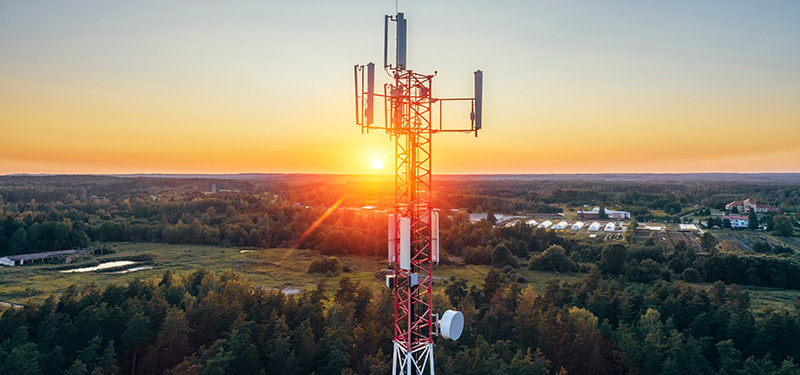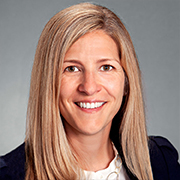On May 20, 2022, the Appeals Court issued a noteworthy decision holding that where a municipality provided notice of a public hearing through two of the three methods required by G.L. c. 40A, § 11, “there was not a complete failure of notice of a public hearing” and the ninety-day limitation period in G.L. c. 40A, § 17, would not toll.
Anyone who is aggrieved by a decision on a special permit is well-advised to immediately consult with an experienced land use and zoning attorney to avoid missing statutory filing deadlines which may bar them from seeking relief.
The case –Mark Markham & others v. Pittsfield Cellular Telephone Company, Appeals Court No. 21-P-336 (May 20, 2022) - involves the approval of an application for a special permit by Pittsfield Cellular Telephone, doing business as Verizon Wireless, to construct a cell tower at 877 South Street in Pittsfield. Following the filing of the application, the City of Pittsfield Zoning Board of Appeals scheduled a public hearing for November 15, 2017. As required by G.L. c. 40A, § 11, the city posted notice of the public hearing in city hall and published the notice in the Berkshire Eagle on November 1 and 8, 2017. Notice of the public hearing was also posted on the city’s website.
The city also generated a list of names and addresses of abutters, including the plaintiffs, and according to the city permitting coordinator, mailed notice of the public hearing to each abutter on the list. At the hearing on November 15, 2017, the Zoning Board voted to grant the special permit and the decision was filed with the city clerk on November 27, 2017.
Thereafter, construction on the special permit was delayed for over two years. On or about March 18, 2020, the plaintiffs observed construction vehicles driving through their neighborhood to the cell tower site and, at that point, learned of the special permit. Within one month, on April 17, 2020, the plaintiff filed their complaint seeking relief pursuant to G.L. c. 40A, § 17, challenging the special permit on the grounds that they had not received notice of the public hearing by mail, nor did they observe the posting in city hall or the publications in the local newspaper.
The defendant moved for summary judgment on the grounds that the complaint was time-barred in that it was not filed within twenty days after the decision granting the special permit was filed with the city clerk, or within ninety days, the extended period allowed when notice is at issue. The trial court judge found that the plaintiffs’ complaint was untimely and granted the defendant’s summary judgment motion. The trial judge did, however, find that a genuine issue of material fact existed as to whether the city mailed notice of the public hearing to the plaintiffs, and assumed that the city had failed to do so. Nonetheless, the trial judge interpreted § 17 “to mean that the plaintiffs were required to bring this case within ninety days of the filing of the decision in the clerk’s office.” Markham, at * 5. The plaintiffs appealed.
Under G.L. c. 40A, § 11, a city is required to provide notice of a public hearing on an application for special permit in three ways: (i) by mailing a copy of the notice to direct abutters and abutters of abutters within 300 feet of the subject site; (ii) by posting it in the city hall; and (iii) by publishing it in a newspaper. The question before the appeals court was whether, where the city failed to give notice by the first of those three methods, the ninety-day limitation period in G.L. c. 40A, § 17, should be tolled until the plaintiffs received actual notice. This question was left open in Allegaert v. Harbor View Hotel Owner LLC, 100 Mass. App. Ct. 483, 488 n.8 (2021).
The appeals court concluded that the limitations period should not be tolled. In reaching its decision, the appeals court explained that the mechanism for appeal from a decision on a special permit is set forth in G.L. c. 40A, § 17, which requires that a person aggrieved by a decision must bring an action “within twenty days after the decision has been filed in the office of the city or town clerk.” Section 17 also provides:
The foregoing remedy shall be exclusive, notwithstanding any defect of procedure or of notice other than notice by publication, mailing or posting as required by this chapter, and the validity of any action shall not be questioned for matters relating to defects in procedure or of notice in any other proceedings except with respect to such publication, mailing or posting and then only by proceeding commenced within ninety days after the decision has been filed in the office of the city or town clerk . . .” (emphasis added).
Thus, the appeals court held that “if an aggrieved person seeks to invalidate a board’s decision because of a ‘defect [ ] in . . . notice’ by ‘publication, mailing[,] or posting,’ the Legislature has extended the time limit for filing a complaint from twenty days to ninety days. Markham, at * 7. The appeals court explained that “by using the disjunctive ‘or’ in the phrase ‘publication, mailing[,] or posting,’ the Legislature signified that it meant for the ninety-day deadline of § 17 to apply to cases like this one, where notice was accomplished by fewer than all three methods.” Id. at 8. The Appeals Court pointed out that if “the Legislature had wanted to require actual notice to abutters, it could have written G.L. c. 40A, § 17, to require the board to transmit the notices to them by registered or certified mail, or by hand delivery.” Id.
(A copy of the decision by the Appeals Court in Mark Markham & others et al. can be found here)
Anyone who is aggrieved by a decision on a special permit is well-advised to immediately consult with an experienced land use and zoning attorney to avoid missing statutory filing deadlines which may bar them from seeking relief.


